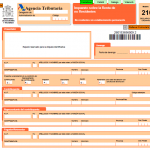

Do you rent out your property in Spain but live abroad?
Our expert team will take care of your Rental Income Taxes in Spain quickly and easily. With our online process, you’ll be done in less than five minutes—just answer a few simple questions, and we’ll handle the rest.
Every submission is carefully reviewed by a licensed specialist, ensuring a precise and hassle-free tax filing. Enjoy the convenience of direct debit payment and the peace of mind of knowing you’re fully compliant with Spanish rental income tax regulations.
Some things still need a human touch! Answer a few questions online, understand your tax obligations in Spain and our authorized experts will handle your taxes.
Answer a few questions, and we'll determine which Spanish taxes apply to you. We're here to help via phone, chat, or email.
We calculate, verify, and submit your taxes to the Spanish tax authority, setting up direct debit for easy payment.
Receive your tax return, with the payment processed directly from your Spanish bank via direct debit.
If you rent out your property in Spain and live outside the country for more than 183 days a year, you must file the Non-Resident Rental Income Tax (Modelo 210).
Our service helps you declare your rental income easily and securely. You just need to provide details about your rental period, income, and deductible expenses. We’ll review everything, calculate your taxes, and file the return for you — including setting up the direct debit, so you don’t have to visit a Spanish bank.
Fast, simple, and handled by specialists who guide you through every step.
The tax rate depends on whether you live within the EU or outside:
EU residents: 19% of the taxable amount, and deductions are allowed.
Non-EU residents: 24% of the taxable amount, with no deductions allowed.
When deductions apply (for EU nationals), the effective tax rate is usually around 10–15% of the rental income after applying all eligible deductions.
The part of the year you do not rent your property is subject to an “imputed tax”, as Spain considers owning a second home a taxable benefit.
If you also pay taxes for your Spanish rental income in your home country, you can usually claim back the Spanish tax under double taxation agreements.
Yes, EU residents can deduct costs directly related to generating rental income — such as maintenance, repairs, management fees, or utilities.
Costs must be proportional to income and sometimes amortized over time. There are also general allowances based on property value.
If you rent long-term for residential purposes, you may also apply a 60% reduction on the taxable base.
Getting deductions right can be complex — especially after renovations — but our specialists ensure you get every deduction you’re entitled to.
You don’t need to send receipts to us, but if the tax authority requests verification, you must have proper invoices with your NIE, name, and VAT number. Spain is strict about invoice requirements.
From 2025 onwards, rental income must be declared annually.
Previously (until 2023), it was declared quarterly.
The deadline for direct debit for 2025 income is 15 January 2026.
The imputed (non-rental) tax must be declared annually by the end of December of the following year.
If you missed past years, you must still file quarterly declarations for those years.
For example, if you rented out 3 quarters in 2022, you’ll need to submit three separate declarations.
If you are a Spanish tax resident, you must file between April and June and declare foreign assets by March.
Payment methods
You pay our fees securely by credit or debit card — we never access your bank account.
Only the Spanish Tax Authority (AEAT) can charge your account through direct debit.
If the direct debit fails, common reasons include:
The bank registered your account under your passport instead of your NIE.
A misspelled NIE number.
The property owner is not listed as the account holder.
If you are a couple, ensure the account is under both names.
If time is short, you can pay into our client account, and we’ll complete the payment for you.
Modelo 210 is the Spanish tax form for non-residents who own property in Spain (more than 183 days per year abroad).
You must use it to declare:
The days you used your property personally (“imputed income”).
Any rental income earned in Spain.
Even if you have no rental income, you still must declare imputed income — Spain treats ownership of a holiday property as a taxable benefit.
Alongside Modelo 210 (Non-Resident Income Tax, NRIT), you also pay IBI, the local property tax, charged automatically by your municipality (usually via direct debit when your lawyer registers the property).
If you haven’t declared when you should have, we recommend declaring retroactively up to four years back, as that’s the typical period the Spanish Tax Authority reviews.
You might need to pay penalties for missed years, but discounts are available if you voluntarily regularize your situation.
It’s always better to pay late than to wait for the tax agency to find out.
Spain shares tax data across the EU joint register, so undeclared income is traceable.
The agency is generally lenient when you self-declare but strict if they catch you.
If you and your spouse (or others) own the property jointly, you must each file a separate tax return.
Non-residents must declare per owner and per property — even if you share one account or rent together.
Some advisers claim one declaration is enough, but this is incorrect.
Each owner must file individually to comply with Spanish law.
In the past, non-residents had to file per tenant, but this has since changed.
No VAT if rented to an individual using it as a residence.
VAT applies if rented to a company or professional using it for business.
Possible VAT if rented to a company that sublets as holiday accommodation or if you provide extra services (like breakfast).
If you rent to a company, it may withhold tax on your behalf:
Non-EU landlords: 24% retention — no need to file if you can’t deduct expenses.
EU landlords: 19% retention — you can still file to reclaim the difference if deductions lower your effective tax rate.
The Valor Catastral is your property’s official tax value used to calculate several taxes, including the imputed income tax.
You can find it on your IBI (property tax) receipt, usually under “Valor Catastral Total”, “Base Imponible”, or similar.
If your home is newly built and doesn’t have one assigned yet, contact us.
You can also send us a photo of your IBI bill, and we’ll find it for you.
Yes — if you’re a non-resident, you must declare your Spanish rental income in both countries.
In Spain, you declare the rental income; in your home country, you may deduct or offset according to your own tax rules.
You can then claim back Spanish tax to avoid double taxation under bilateral agreements.
Example 1:
Rental income in Spain: €2,500
Deductions: €1,000 → taxable profit €1,500
Tax rate 19% → €285 to pay in Spain (~11.4% effective rate)
Example 2 (Sweden):
Spanish rental income: €2,500
Swedish deductions: €2,500 → taxable profit €0
→ You’d only pay Spanish tax (€285).
Example 3 (Other EU country):
Spanish rental income: €2,500
Deductions: €500 → taxable profit €2,000
Tax rate: 30% → €600 tax in home country
→ You could reclaim Spanish tax so total doesn’t exceed €600.
The total amount you pay equals the higher of the two countries, depending on the agreement between Spain and your home country.
Yes, you can — but Spain’s tax system is complex and changes often.
Rules, forms, and valuations vary yearly, and errors can lead to penalties or missed deductions.
We frequently see clients who filed on their own for years and later discover costly mistakes.
Our service handles everything, ensures accuracy, and offers full support.
As we like to say: even if you can cook, it’s nice to go to a restaurant sometimes.
If you speak Spanish, understand the bureaucracy, and have a finance background, doing it yourself might make sense.
Otherwise, letting professionals handle it usually saves more than it costs, as we often find deductions worth more than our fee.
Before you file taxes with us the first time, you will need to have:
This tax declaration is for you who:
